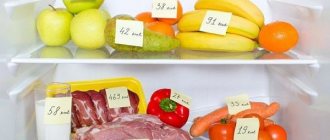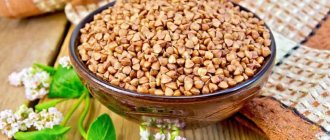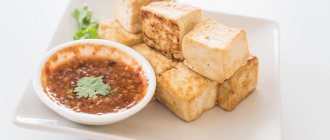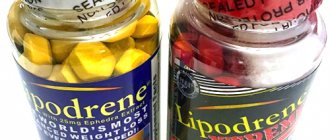What are carbohydrates
From a chemical point of view, carbohydrates are a class of organic substances that contain carbon, oxygen and hydrogen. There are only about 2-3% of them in the body, which are stored in the form of glycogen (roughly speaking, operational energy reserves). 5-6% of the total mass of the liver, up to 0.5% of the heart and 2-3% of skeletal muscles are carbohydrates.
In the body of a 70-kilogram man there is approximately 500 g of glycogen, but besides it there is also glucose, which “floats” freely in the blood. There is very little of it - about 5 grams. The more trained a person is, the more glycogen he can store.
The human body can synthesize carbohydrates, but in small quantities, so the bulk of carbohydrates enters the body with food. Carbohydrates are found mainly in foods of plant origin. For example, cereals contain about 80% of the total dry mass. And for example, sugar is generally 99.98% carbohydrate.
Carbohydrates after exercise
After training, you need to take in enough carbohydrates to replenish glycogen stores. Anything less will eventually lead to progressive depletion of glycogen stores workout after workout.
For this reason, it is recommended that endurance athletes consume 200-300 grams of carbohydrates in the hours following training (noting that this should fit within the recommendations for total daily carbohydrate dosage). High-glycemic carbohydrates (potatoes, rice, pasta) are known to replenish glycogen stores faster than low-glycemic sources.
Those who exercise less intensely can stick to carbohydrate sources that taste best to them.
What are carbohydrates for?
Carbohydrates have their own tasks:
Energy: carbohydrates provide 50-60% of the body's daily energy consumption. When 1 g of carbohydrates is oxidized, 17 kJ of energy is released, or the more familiar 4.1 kcal and 0.4 g of water. Therefore, when you stop eating carbohydrates, you first “drain”, that is, the previously stored water comes out of you. This process is mistakenly mistaken by many for true fat burning, while glycogen stores are simply depleted.
The main source of energy for us is glycogen stored in the liver and muscles and free glucose in the blood, which are formed from the carbohydrates eaten.
Plastic or construction: some enzymes and cell membranes are “built” from carbohydrates; they are also part of polysaccharides and complex proteins of cartilage, bone and other tissues. Carbohydrates are stored as a reserve of nutrients, and are also part of complex molecules (for example, ribose and deoxyribose) and participate in the construction of the universal energy source ATP, the “storage” of genetic information DNA and macromolecules contained in cells - RNA.
Specific: carbohydrates, for example, act as anticoagulants, that is, they make sure that the blood does not clot at the most inopportune moment. They are receptors for a number of hormones or pharmacological substances - that is, they help hormones recognize where and in what quantity they are needed. They also have an antitumor effect.
Nutrient storage : carbohydrates are stored in skeletal muscles, liver, heart and some other tissues in the form of glycogen. Glycogen is a rapidly mobilized energy reserve. The function of liver glycogen is to provide glucose to the entire body, the function of muscle glycogen is to provide energy for physical activity.
Protective: Complex carbohydrates are part of the immune system. Mucopolysaccharides are found in mucous substances that cover the surface of the vessels of the nose, bronchi, digestive tract, and genitourinary tract and protect against the penetration of bacteria and viruses, as well as from mechanical damage.
Regulatory: food fiber does not undergo the process of breakdown in the intestines, but it activates intestinal motility and enzymes used in the digestive tract, improving digestion and absorption of nutrients.
What happens to your body when you eat too many carbohydrate-rich foods
If you want to avoid poor mood and well-being, you should consume carbohydrates and generally eat a balanced diet that includes proteins, fats, and minimally processed foods.
Carbohydrates are calories, so if you eat too many carbohydrate foods, fat or protein without burning them, you will soon gain weight.
Experts say gaining a lot of excess weight can lead to obesity, which can lead to other diseases such as insulin resistance, heart disease and prediabetes. Such people should reduce their intake of carbohydrate foods and be more active to burn accumulated calories.
What types of carbohydrates are there?
Bread, cereals, pasta, vegetables, fruits, sugar - these are all products of plant origin that consist primarily of carbohydrates or mono-, di- and polysaccharides.
Monosaccharides: These are simple carbohydrates that are not broken down by digestive enzymes. Glucose and fructose are monosaccharides found in many fruits, juices, and honey and are called sugars. They enter the body as if on their own if, for example, you ate a spoonful of sugar, or they are formed during the digestion process from more complex carbohydrates.
As soon as there is a lot of free glucose in the body, the pancreas is activated, which secretes the hormone insulin, thanks to which glucose is redirected to tissues, where it is used for the synthesis of glycogen, and with a significant excess, for the synthesis of fats (this is the effect of excess cakes and abuse fruit juices!) For monosaccharides to be our friends and not our enemies, their amount in the diet should not exceed 25-35% of the total amount of carbohydrates eaten per day.
Roughly speaking, for every 2 teaspoons of sugar (monosaccharides or simple carbohydrates), you need to consume 100 grams of oatmeal (complex carbohydrates).
Keep yourself in check with simple carbs
Nowadays it is very fashionable to replace glucose with fructose under the auspices that it is supposedly more useful and it is not stored as fat. This is not true: glucose and fructose are siblings. The only difference between them is that glucose contains an aldehyde functional group, and fructose has a keto group.
Disaccharides: This is a component of oligosaccharides, which consists of 2-10 monosaccharides. The main disaccharides are sucrose (regular table sugar), consisting of glucose and fructose residues, maltose (malt extracts of cereals, sprouted grains) or two glucose residues connected to each other, lactose (milk sugar) containing a glucose and galactose residue. All disaccharides have a sweetish taste.
Polysaccharides: These are complex carbohydrates made up of many hundreds or thousands of monosaccharides linked together. This type of carbohydrate is found in starch (potatoes, cereals, bread, rice, etc.), in “animal starch” - glycogen, in dietary fiber and pectin (fruits, vegetables, grains, legumes, bran, etc.) and easily digestible inulin ( Jerusalem artichoke, chicory root, onion, garlic, bananas, barley, rye).
Can fast carbohydrates be beneficial?
The positive effect of monosaccharides is reported by athletes who note the effect of carbohydrates on the fat burning process during intense strength training. However, the rules of professional bodybuilding do not work in the life of an ordinary person far from the gym.
Simple carbohydrates are most dangerous for our figure in the afternoon. It is at this time that the body is especially active in converting them into fat.
Monosaccharides are found in:
- Sahara
- Sweets
- Jams, jellies and other homemade and store-bought preparations
- Milk chocolate
- Mede
- Soda, milkshakes
- Some fruits (grapes, bananas, etc.)
If you are watching your figure, it is in your best interests to reduce the consumption of foods containing simple carbohydrates or give up some of them - for example, sugary confectionery, refined sugar (replacing it with stevia), milk chocolate (in exchange for dark),
How many carbohydrates do you need?
WHO and RAMS recommend eating 4 g of carbohydrates for every kg of body weight. That is, for a girl weighing 60 kg, you need to eat 240 g of carbohydrates. This is approximately 360 g of boiled round rice, or 1.5 kg of boiled potatoes, or 2.6 kg of sweet apples, or 12 kg of celery.
4 g per kg of weight are recommendations for inactive people. For slightly moderately active, the norm is 5-6g, for moderately active (for example, 3 strength training sessions per week for an hour) – 6-7g. Athletes are recommended to eat at least 8-10g of carbohydrates for every kg of their muscular body.
Will complex carbohydrates help you lose weight?
The right selection of complex carbohydrates will help reduce body weight. This is facilitated by the introduction of fruits, vegetables, and whole grains into the daily diet. To get rid of extra pounds, the daily dose of carbohydrates should be from 10 to 15% of the total calorie intake.
The best complex carbohydrates for weight loss, table:
| Cereals | Amaranth, pearl barley, oatmeal, bulgur, millet, unprocessed rice, quinoa, buckwheat, whole grain flour |
| Legumes | Beans, lentils, various types of beans, green peas, chickpeas |
| Nuts, seeds | Sesame, pumpkin, sunflower seeds, flax seeds, poppy seeds, almonds, pine and walnuts, hazelnuts, cashews, pistachios |
| Greenery | Lettuce, spinach, lettuce |
| Vegetables | Carrots, tomatoes, beets, eggplants, zucchini, broccoli, onions, bell peppers, zucchini, celery |
| Fruits | Citrus fruits, apples, pears, peaches, avocado, pomegranate, figs |
| Berries | Raspberries, cherries, strawberries, currants, plums, cranberries, prunes, sweet cherries, gooseberries |
[Video] How to eat carbohydrates and lose weight:
What if without them? Risks of high-protein (no-carbohydrate) diets
Yes, humans are a protein-rich life form that can exist without eating carbohydrates, but this is unhealthy, illiterate, and will be harmful to health in the long run. Because reducing the carbohydrate content in food increases the breakdown of cellular proteins, fat oxidation and the formation of ketone bodies, which can lead to acidosis, that is, increase acidity in the body.
Usually, the oxidation products of organic acids are quickly removed from the body, but during fasting or a low-carbohydrate diet, they are retained in the body, which in the best case will lead to the appearance of acetoacetic acid and acetone in the urine, and in severe cases can lead to coma (this happens with diabetics).
Be careful with Dukan protein diets
Dukanites experience metabolic acidosis - with a lack of carbohydrates, acidic products accumulate in the tissues, that is, keto- or lactic acidosis occurs.
Ketoacidosis occurs due to insulin deficiency. When you eat critically low carbohydrates (less than 2 g per kg of body) for quite a long time, the body fuels itself with energy from glycogen and stored fats. The brain receives energy mainly by utilizing glucose and acetone is a toxic substance for it. Direct breakdown of fats cannot provide the brain with the necessary energy, and since glycogen reserves are relatively small (500 g) and are depleted during the first days after giving up carbohydrates, then the body can provide energy to the brain either through gluconeogenesis (internal glucose synthesis) or by increasing the concentration of ketone bodies in the blood to switch other tissues and organs to an alternative energy source.
Normally, when there is a deficiency of carbohydrate foods, the liver synthesizes ketone bodies from acetyl-CoA - ketosis occurs, which does not cause electrolyte disturbances (this is a variant of the norm). However, in a number of uncompromising cases, decompensation and the development of acidosis are also possible and can lead to diabetic ketoacidotic coma.
Fats in low-carbohydrate diets are burned worse than in a normal, balanced diet, since fats are usually combined with carbohydrates for subsequent conversion into energy, and with a lack of carbohydrates, incomplete fat burning occurs and a byproduct is formed - ketones, which accumulate in the blood and urine, what causes ketosis. Ketosis leads to a decrease in appetite (the body thinks that it is on the verge of survival), performance decreases, lethargy, fatigue and irritability become the norm.
Complex carbohydrates for muscle gain
Carbohydrates not only provide a person with energy, they prevent the destruction of muscle tissue. With a deficiency of polysaccharides, the body begins to break down muscle fiber cells to obtain the required amount of energy. Products containing carbohydrates should become a mandatory part of the diet of athletes and people doing heavy physical labor. Thanks to them, the body compensates for the loss of spent glycogen.
A lack of carbohydrates in food is manifested by fatigue, a decrease in strength indicators, which means that there can be no talk of any muscle relief or body sculpture. Carbohydrates combined with sufficient protein create healthy muscles.
To get the desired muscle volume, you should correctly calculate the amount of carbohydrates. To achieve maximum effect, their volume should be more than 30% of all calories entering the body.
You can supply yourself with healthy carbohydrates using certain foods:
- Brown Uncooked Rice - Combines the right carbohydrates with other nutrients, helps build muscle mass, promotes satiety, and maintains normal blood sugar levels. White, polished rice does not have similar properties.
- Oats provide the body not only with complex carbohydrates, but also with protein, guarantee an increase in muscle fibers, activate digestion, alleviate the symptoms of inflammation, and nourish healthy intestinal microflora.
- Sweet potatoes are a source of vitamins, microelements, fiber, and natural sugars. Useful for nourishing the brain, strengthening the immune system and providing energy.
More details:
Diet for gaining muscle mass for men











